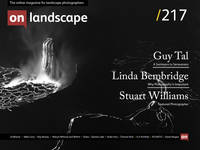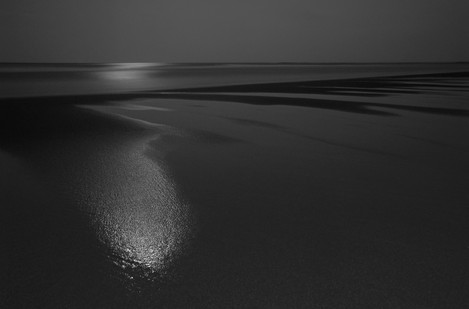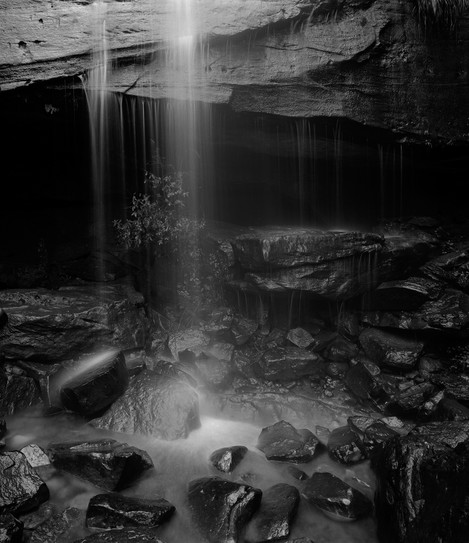Featured Photographer

Stuart Williams
Stuart Williams works in conservation, mostly in various parts of Africa, trying to stem the tide of humanity from destroying the lives of all who call the wild places of the world their home. He carries a medium format camera loaded with black and white film on all his travels, hoping to find time to make photographs of the astonishing places he visits and the wonderful people he meets along the way. His images have been exhibited from time to time.

Michéla Griffith
In 2012 I paused by my local river and everything changed. I’ve moved away from what many expect photographs to be: my images deconstruct the literal and reimagine the subjective, reflecting the curiosity that water has inspired in my practice. Water has been my conduit: it has sharpened my vision, given me permission to experiment and continues to introduce me to new ways of seeing.
Stuart got in touch with On Landscape about a pdf of images that he had put together titled ‘The Place That We Call Home’. At the time we didn’t know much about him - there are few words on his website - but his photographs offer a tantalising glimpse of parts of the world that few of us know and even fewer will get to see. It’s a fascinating read; we think in our relative comfort with the world at our e-fingertips that we can find out all that we need, but the following offers an insight into personal experiences beyond our imagination, our own smallness, and the disproportionate influence that we exert.
Would you like to start by telling readers a little about yourself – where you grew up, your education and early interests, and what that led you to do as a career?
With the exception of my tertiary education, I have spent my life in Africa, having grown up in Kenya. I grew up under big skies and the equatorial sun, with great lungfuls of fresh air and scabs on my knees, surrounded by ant-covered Acacia drepanolobium and the powdery yellow bark of Acacia xanthophloea trees, and getting immovably stuck in black-cotton mud late at night and having to walk back home for miles under a blanket of the darkest clouds and feeling, with each step, gooey mud being squeezed between my toes. Being on safari - in the true sense of the word and in which the journey was the destination - in great wildernesses with an assemblage of extended families, strangers and other eccentric characters was a central part of growing up. (And safari in this context and in KiSwahili means ‘journey’ - and has nothing to do with going on a “game drive” or “wildlife viewing perambulation” in an African protected area, or the web browser associated with Mac computers that have become synonymous with the common, modern use of the word.) Psychologists might say that I have an issue with identity and, true, I have long lost my sense of belonging - including to any nation state (which are, after all, only figments of our imaginations). Consequently, I probably exhibit an eclectic melting pot of cultural traits and characteristics. Along the way, I did receive an education and at some point, I embarked on a career of medicine - but the lure of the wild places of the world, and distress and discomfort at what humanity is doing to those places got the better of me and I ended up with a PhD in Conservation Ecology (on Grevy’s zebras, more of which a little later) and the rest, as they apparently say, is history.
Where are you currently resident, and what (non-photographic) projects are you involved in?
I am currently homeless but in the process of shifting jobs, taking me from working with an organisation in Malawi that is striving to slow as much as possible - if not stop - the illegal trade in wildlife products (mostly ivory from elephants, horns from rhinos, teeth from hippos and pangolins that are traded in many forms from live animals to the scales that are removed from animals that are dropped live into boiling water) to working with another organisation in the heart of the forests of the Democratic Republic of the Congo.



